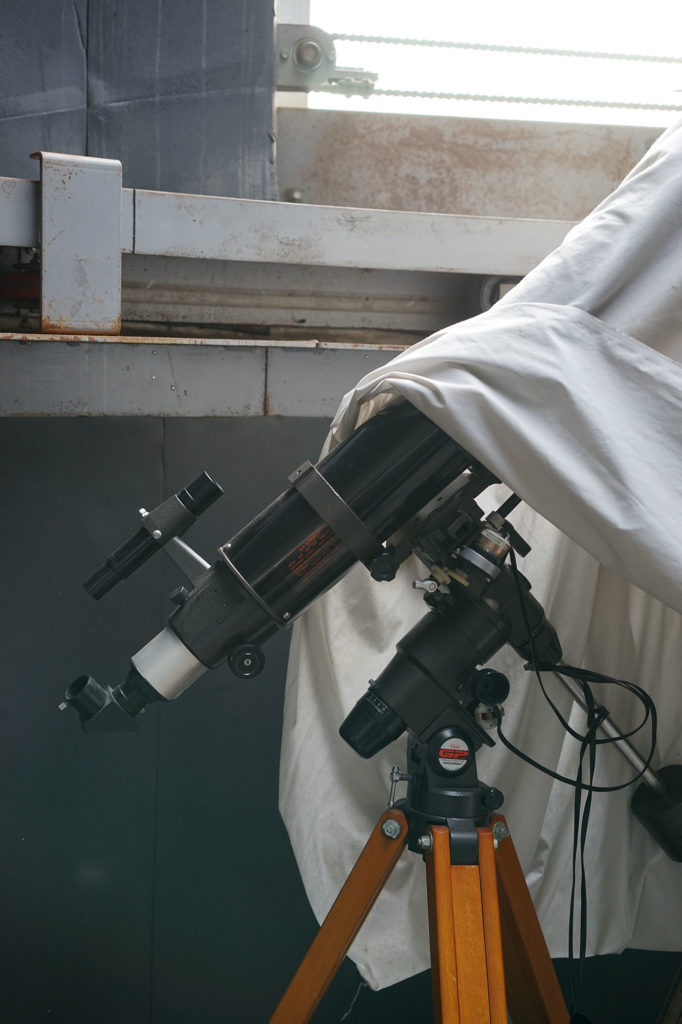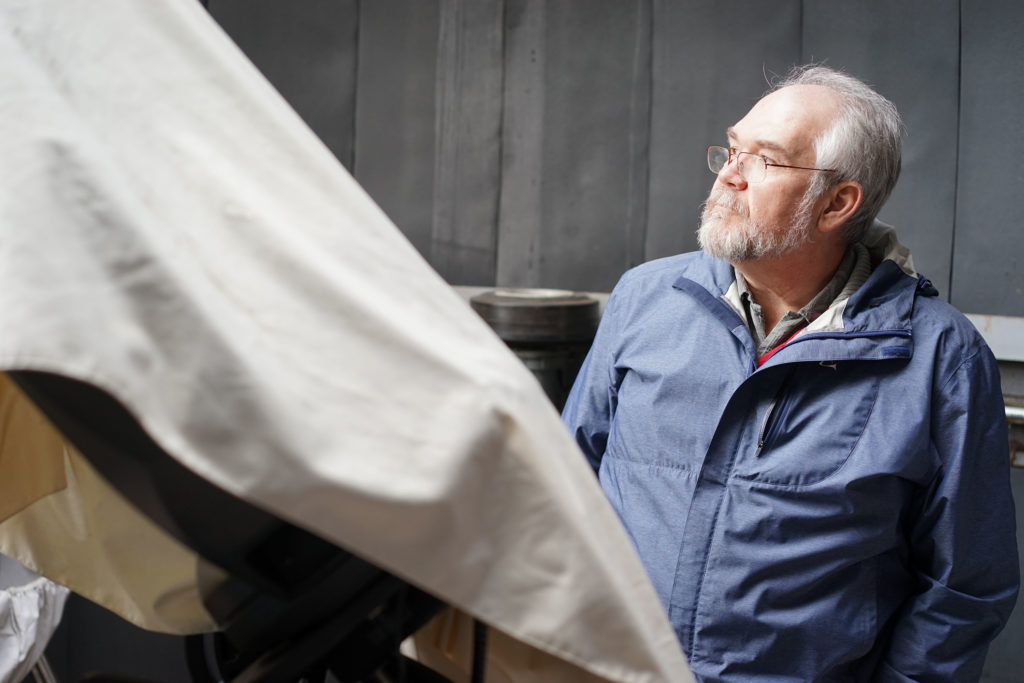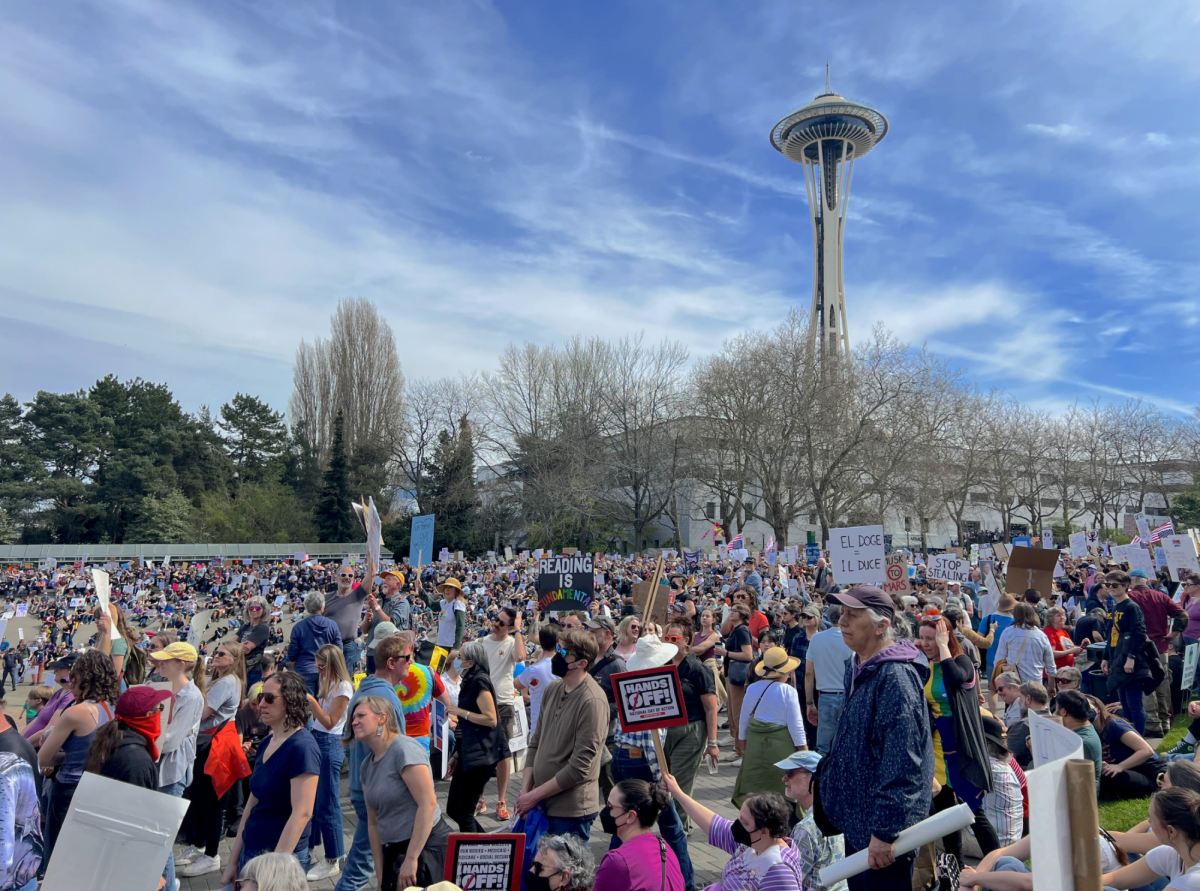We are just specks floating through endless dust. Our bodies and the celestial bodies all around us contain many of the same elements. The building blocks of life—carbon, hydrogen, nitrogen, oxygen, phosphorus and sulfur—can be found within our own bodies as well as the bodies of objects in space.
Outer space has dazzled humans since our species came into existence on Earth. Astronomical observations have long been helping humans to navigate, create calendars and develop stories and a greater understanding of life.
While Seattle University doesn’t have an astronomy major, it does have astronomy classes and a telescope. The telescope is housed within the campus observatory on top of the engineering building. To access the observatory, one must travel up a few flights of concrete steps. Upon stepping out on the roof, the entirety of campus and Capitol Hill sprawls into the distance. Unfortunately, few get the chance to utilize the telescope.

For most of the year, the telescopes in the observatory remain under cover.
“The only reason why we don’t have the observatory open more often is that it doesn’t have good barriers around it, and there’s no ADA access to the roof,” said Professor Joanne Hughes who teaches physics and astronomy. “I’m hoping that when we do renovations to the science buildings, we might be able to move it somewhere where we have elevator access.”
Hughes thinks that there would be a lot of interest and benefit to the community if the observatory were to be moved to a safe and accessible spot. “I have found that even non-science majors are interested in astronomy; because let’s be honest, space is cool,” she said.
Space is filled with unexplained phenomena that keep scientists and theorists alike speculating. One recent oddity in space is an unknown object about three billion light years away known as FRB 121102. This object emits strong radio waves, and is the only known object that repeatedly hurls radio waves through the cosmos.
Scientists observed the waves and found evidence in their shape that they have travelled through an intensely strong magnetic field. Scientists believe that the strange persistent waves and magnetic field are related to a massive black hole nearby. Others are insisting that it is evidence of intelligent life.
Professor Hughes described another curious cosmic phenomena. The star known as known as Betelgeuse, a red supergiant that is within the constellation Orion is nearing the end of its life, and eventually will die a fiery death as a supernova, which occurs when a star runs out of fuel and matter flows to the core of the star. The mass is so great that the star collapses and explodes.
“When it does become a supernova, we will be able to see it from earth during the day and read a book by it at night for a couple months, it will be a nice reworks show,” Hughes said.
Watching events occur in space is an interest of many, as is proven by the wild popularity of viewing last summer’s solar eclipse. Watching eclipses, meteor showers or simply stargazing is fascinating to many, but seeing into the abyss of space can be tricky.

Physics Professor Jeffery Brown is one of the few people on campus with access to the observatory.
Physics Professor and Astronomer Jeffrey Brown has advice on how to best view the night sky.
“Get away from city lights,” Brown said. “Go across the mountains and find yourself a nice dark and clear sky.”
It can be a challenge to see the night sky, especially in a city. A report by National Geographic states that 80 percent of the world’s population and 99 percent of the population of America and Europe cannot see the milky way due to light pollution caused by the artificial luminance of cities.
Light pollution certainly isn’t the only type of pollution produced by humans, and as the Earth is continually depleted of resources, some scientists see hope in creating space colonies. Professor Brown thinks that this may be possible eventually, but not in the foreseeable future. Junior Marine and Conservation Biology student Lexie Codd commented on the possibility of living in space.
“Seeing as how we are messing up the earth so severely right now, looking into space may be a good fall back option,” Codd said. “However, I think it’s kind of dumb, we shouldn’t just continue to destroy the planet and hope to live on another planet once Earth is unlivable.”
Space is a vastly unexplored universe, forever expanding and giving us new puzzles. Perhaps if more people studied the sky, we could learn more about the planet we inhabit.
“Think about what kind of influence astronomy has on life on Earth,” Hughes said. “We learned about global warming by looking at the greenhouse effect on Venus. We learned about the ozone effect from the atmosphere of Mars. Learning about our planet and other planets can help us to realize how fragile Earth is.”
Bailee may be reached at
bclark@su-spectator.com








